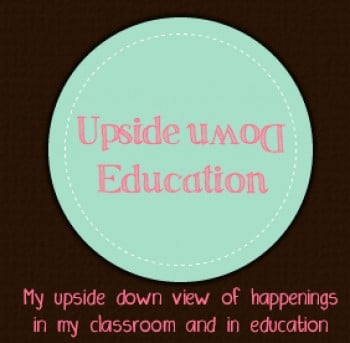This morning I read a tweet that caught my attention about teaching your kids the importance of online reputation. I immediately responded & RT’ed because I liked the fact it was written more toward parents and not teachers. Most of the time when I read an article on teaching digital citizenship it focuses on teacher teaching it. I started wondering how many parents take the time to teach these skills to their kids. My guess is just a few. Most adults aren’t the most savvy when it comes to digital citizenship – think of your high school friends on Facebook, see what I mean.
As teachers this so often falls in our lap. We need to be aware no one may have ever brought this up to your students. Their whole lives they’ve been told not to cross street without looking both ways, don’t talk to strangers, and wait 30 minutes after they eat to swim but no one may have told them what is posted on the Internet has a long shelf life or talking to strangers online could be dangerous. Crazy the 30 min before swimming rule is not even real, but every kid knows it yet they are clueless about what is dangerous (or dumb) to put on a Facebook profile. If they have never been told this, how do they know? Are we waiting for them to find out on their own? We don’t let them figure out the dangers of crossing a street without looking both ways, we tell them, we show them, we have discussions with them. Same thing needs to happen here.
Last month I went to a session at the state tech conference about using web tools in middle school science. The teacher leading the session would show a tool & what her students created with the tool then without fail say “well I’ve never used it and I don’t know how to but I tell the students about it and let them figure it out.” Now I could probably write 10 blog post on this statement, I was cringing. But what really got me is she was sending her students to the computers without even knowing what the program does, how safe it was, etc. The way she kept saying that she left all the computer stuff up to them because they know more was like nails on a chalkboard.
They don’t know more (I hope). Yes, at times they are more familiar with using computers but we know more about safety and common sense than kids. We can’t just turn them loose and never stop and have conversations about safety. It’s too important to ignore. It needs to be a collaborative effort between home at school but we cannot assume the other is doing their job. We all need to. Maybe, just maybe, the more our students learn to be good digital citizens schools will not think they need to block everything. Maybe.
Our world has changed, we are now in the 21st century so we need to change our priorities. Teaching students to have a good reputation online and stay safe must be a priority. The web needs to be part of of our everyday classroom, and students should be safe while they are there.
If you are looking for lessons on digital citizenship Common Sense Media is a fantastic place to start.
